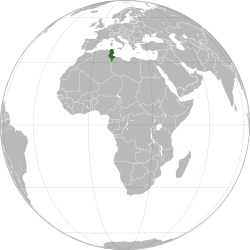Tunisia: IMF Forecasts Economic Growth
By Magharebia
By Monia Ghanmi
Tunisia’s economy is showing signs of recovery and may reach a 6% growth rate by 2017, the International Monetary Fund said on Friday (August 3rd).
“Tunisia’s medium-term economic growth potential remains favourable, but unleashing it requires a comprehensive package of structural reforms to foster private investment,” the IMF said in its annual assessment of the Tunisian economy. “Achieving higher and more inclusive growth over the medium term will be necessary to reduce high unemployment, especially among the youth, and address social and regional disparities.”
The global lender forecasts the growth rate of 2.7% for this year, compared with 2.2% in the last assessment.

“With the economic recovery facing risks from the unsettled political situation and the weak global environment, Directors saw a need to support economic activity while safeguarding macroeconomic stability,” the report stated.
Commenting on the report projections, economics professor Abdeljalil Badri said, “It is true that signs of improvement have started to appear in the economic sectors: tourism rebounded and foreign investment is returning. But it is still fragile due to the economic crisis in the countries of the European Union, Tunisian’s foremost economic partner, which could expose it to risks and hinder economic activity.”
Despite the EU crisis, the Tunisian government is looking to achieve the growth rate of 4.5 per cent by next year.
Minister of Planning and Regional Development Jameleddine Gharbi asserted on August 2nd that the desired growth rate could be achieved through increased consumption, investment and promoting exports.
The focus will be on assisting the recovery of manufacturing and mining, particularly phosphate, and allocating 22.7% of GDP for public investments in 2013, which will help create 90,000 jobs, he said.
Signs of recovery are particularly visible in foreign investment, which increased by almost 45% during the first half of this year, focused especially in the energy and manufacturing industries.
Foreign investment reached 1.12 billion dinars (560 million euros) in the first half of 2012, compared with 775 million (350 million euros) during the same period last year, the Foreign Investment Promotion Agency (FIPA) revealed on August 1st.
Professor Badri attributed this to better security and political stability.
“This phase is witnessing a flow of foreign investment as a result of improved security and political conditions in the country as well as improvement of the business climate, not to mention the demand by Tunisian businessmen to invest in their country,” he said.
Badri predicted further support of foreign investment in the coming period, especially after the influx of businessmen and money to Tunisia in the recent period from several countries.
He added that this indicates restored confidence among foreign investors as well as the commitment by some countries to assist Tunisia and stimulate investment to create jobs and contribute to the development process.
